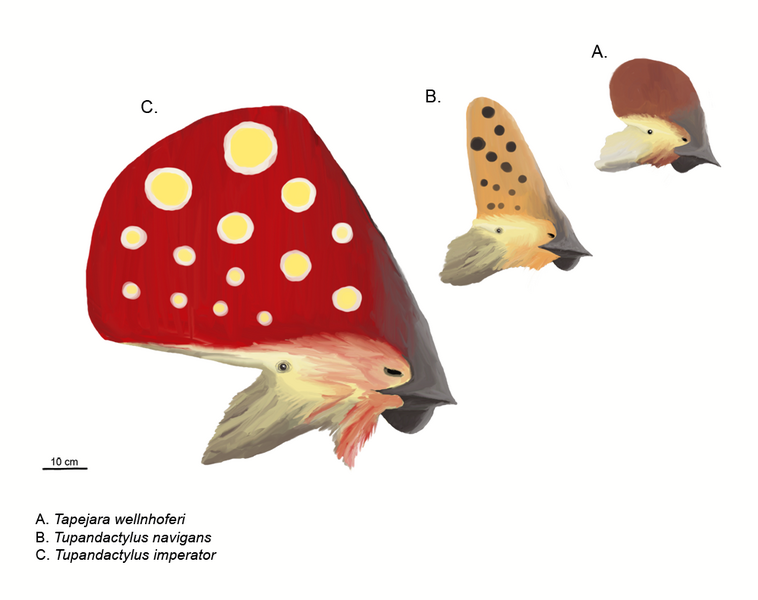 Pterosaurs (incorrectly labeled “Pterodactyls” by old-timers such as I) flew the skies during the Mesozoic Era, some 220-65 million years ago. The huge head crests sported by many have baffled scientists since the first specimen was found in 1784 (please see drawing). However, a recently discovered fossil hints that sexual dimorphism may be involved, and has allowed researchers to determine the sex of fossilized Pterosaurs for the first time.
Pterosaurs (incorrectly labeled “Pterodactyls” by old-timers such as I) flew the skies during the Mesozoic Era, some 220-65 million years ago. The huge head crests sported by many have baffled scientists since the first specimen was found in 1784 (please see drawing). However, a recently discovered fossil hints that sexual dimorphism may be involved, and has allowed researchers to determine the sex of fossilized Pterosaurs for the first time.
Technically, Pterosaurs are flying reptiles, not birds. Yet they possess many bird-like qualities, so I thought that bird enthusiasts might be interested in this latest finding concerning their lives. In any event, taxonomy is constantly blurring the lines between various groups (for example, birds are now considered to be “modern dinosaurs”, and closely related to crocodilians), so perhaps Pterosaur classification may change in the future… Read More »
 That Bird Blog – Bird Care and History for Pet Birds
That Bird Blog – Bird Care and History for Pet Birds


